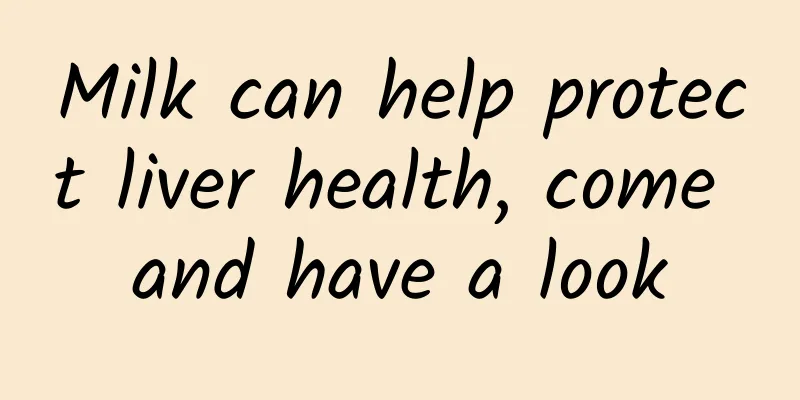Milk can help protect liver health, come and have a look

|
Out of sight, out of mind, we don’t tend to pay much attention to our livers. But without them, we can’t live, so taking care of our livers is just as important as taking care of our hearts. New research suggests that dairy products may help maintain liver health, as evidence suggests that people who regularly consume dairy products have a lower risk of non-alcoholic fatty liver disease (NAFLD). NAFLD affects an estimated 25% of the world’s population and is a leading risk factor for long-term liver disease. If left untreated, this common condition can lead to liver damage, cirrhosis and even liver cancer, and is closely associated with a variety of metabolic syndromes, including obesity, high blood pressure and insulin resistance. The best way to prevent NAFLD is to ensure you have a healthy lifestyle, including eating a healthy diet. This may mean cutting back on red and processed meat, fast food and sugary drinks – all of which carry a higher risk of NAFLD – and opting for more fruits, vegetables and whole grains. Until now, it has been unclear whether dairy consumption is associated with NAFLD risk. Although dairy products are rich in healthy nutrients, some scientists have previously worried that the saturated fat in dairy products could harm liver health, but recent findings are beginning to allay concerns that dairy products can cause liver disease. Recently, researchers pooled and analyzed 11 studies involving a total of 43,649 participants to clearly understand the relationship between dairy intake and liver health. By summarizing these research results, the researchers found that consuming dairy products can reduce the risk of non-alcoholic fatty liver disease. The study showed that there is an inverse relationship between the two, that is, people who consume more dairy products have a lower risk of non-alcoholic fatty liver disease than those who consume less dairy products. Overall, a higher intake of dairy products can reduce the risk of non-alcoholic fatty liver disease by 10%. Specifically for different types of dairy products, the researchers found that yogurt can reduce this risk by 12%, while milk can reduce it by 14%. However, the researchers failed to find an association between cheese and the risk of non-alcoholic fatty liver disease. The researchers believe that although dairy products contain saturated fat, the effect of dairy intake in reducing the risk of liver disease may lie in the dairy matrix, that is, the physical state of the dairy product itself. In addition, dairy intake can improve blood lipids, reduce triglycerides and total cholesterol (closely related to liver fat accumulation), and increase high-density lipoprotein cholesterol. However, the researchers also cautiously stated that the observational studies involved in this summary study have different levels of data quality, and the relevant research results also need to be confirmed by further large-scale studies. However, their conclusions are consistent with another recent review paper. This review paper shows that people with higher dairy intake have a lower risk of metabolic syndrome, hypertension, type 2 diabetes, stroke and cardiovascular disease. |
Recommend
Causes of urticaria during confinement
Most mothers will be physically weak and have dec...
What to do if a girl has hair on her belly
Growing hair on the belly will seriously affect t...
When to start surgical treatment of kidney stones is crucial
Author: Ye Zixing Peking Union Medical College Ho...
Can I get pregnant if I have sex a few days before my period?
Generally speaking, women can have sex a few days...
There is no specific medicine to treat it yet! This virus has entered its peak period, please check the prevention and control guide →
Winter is coming Norovirus enters peak season at ...
What are the ways to maintain a woman's uterus?
A woman's uterus is a very important physiolo...
Canalys: Apple's share of the global high-end mobile phone market will be 63% in Q3 2024, and Huawei will be third
According to the latest data from Canalys, in the...
What causes breast nodule pain?
Breast nodules often lead to breast hyperplasia, ...
What to do if you have vaginal itching during late pregnancy
Some pregnant women experience late-stage vaginal...
The 10 "good habits" you think are actually quietly "stealing" your health!
Drinking soup every day, walking 10,000 steps a d...
How to check follicles? These methods are often used
It is best for women to do a follicle check befor...
Pancreatic cancer precancerous lesions should not be ignored, early identification is the key
Pancreatic cancer, a disease called the "sil...
What are the causes of irregular menstruation? 4 common factors
Women's menstrual irregularities should be ta...
Can the thicker legs during pregnancy be restored?
After women become pregnant, usually for the heal...









